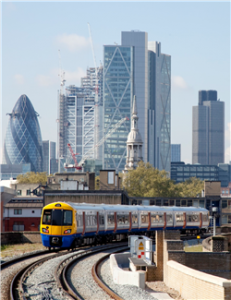Network Rail responds to ORR draft determination

Network Rail today published its response to the Office of Rail Regulation’s draft determination for the period 2014 to 2019, CP5.
Network Rail welcomes the recognition in the determination of the significant progress the industry as a whole has made in the last decade on train performance, value for money, affordability, and, above all, safety as the company continues to meet unprecedented increases in passenger and freight demand at the same time as renewing our Victorian network.
During CP4 Network Rail has identified and begun to address the major challenges that those two goals confront us with, particularly in our approach to sustainable asset management and optimising the inevitable trade-offs between performance and capacity constraints.
Network Rail is determined to keep working with the rest of the industry to maintain, and build on, that progress, which is why we have used the time since the determination to analyse, in detail, the ORR’s proposals, particularly given its assessment that the chances of us reaching the targets it has set are less than fifty percent.
The strategic business plan Network Rail published in January set out the fundamental changes we are committed to carrying out in our culture, working practices, use of technology and collaboration with our customers and partners. The ORR’s draft determination requires us to go beyond these ambitions and deliver even higher levels of performance and cost savings with less investment, and less money to operate and manage the railway, and with less funding for enhancements.
ADVERTISEMENT
As a result, Network Rail believes that the cumulative impact of the scale and pace of change that the ORR has proposed across a range of activities makes the package as a whole unbalanced.
David Higgins, Network Rail chief executive, said: “The regulator’s determination provides the opportunity for Network Rail and the industry to build on the progress and success of the last decade, but whilst there are many aspects of the draft which we welcome, taken as a whole we believe it is unbalanced and, therefore, unrealistic.”
Amongst the issues Network Rail is concerned about are:
The proposal to cut our renewals budget by a further £594m on top of the £2.2bn of savings we had already identified in our plan. This does not reflect the additional costs involved in focusing track renewals on critical routes which are more complex, and therefore expensive, because of their higher rates of use and difficulties of access.
The expectation that we should deliver an additional £800m of property income and enhancements on top of the £1.8bn we had already aimed for. We, and independent property consultants, consider this to be unrealistic.
Our plans to update antiquated industry IT systems has been cut from £614m to £338m and our plans for a special budget for research and development to stimulate much needed technological innovation to drive efficiencies has been reduced from £300m to £50m.
A significant increase in the level and degree of regulatory oversight which will result in Network Rail having to report on a total of 3,700 measures.
An assumed cost of financing which is too low because it does not reflect current market conditions.
As a result of these, and other real concerns, Network Rail is asking the ORR to restore £1.4bn of the £2.4bn it cut from our original plans (contained in the strategic business plan published in January).
Network Rail is also asking the ORR to review the regulatory regime it is proposing for CP5 since it believes the current proposal will:
* add additional cost through duplication of effort;
* deny the company the flexibility it needs to manage the risks inherent in a highly complex industry; and
* deny the industry as a whole the flexibility it will need to manage jointly the trade-offs between capacity and performance in a period when demand will continue to grow and there will be inevitable disruption as we continue to deliver the biggest rail investment programme since the Victorian era.
Mr Higgins concluded: “We had already set ourselves tough, challenging targets for the next five years in terms of further improving performance, safety and continuing high levels of investment to grow and expand our railway. The ORR’s response to our plans calls us to deliver too much, too quickly and is, overall, simply unrealistic. It would be irresponsible for us not to be open and honest about the scale of the challenge that would pose for us as an organisation.”

